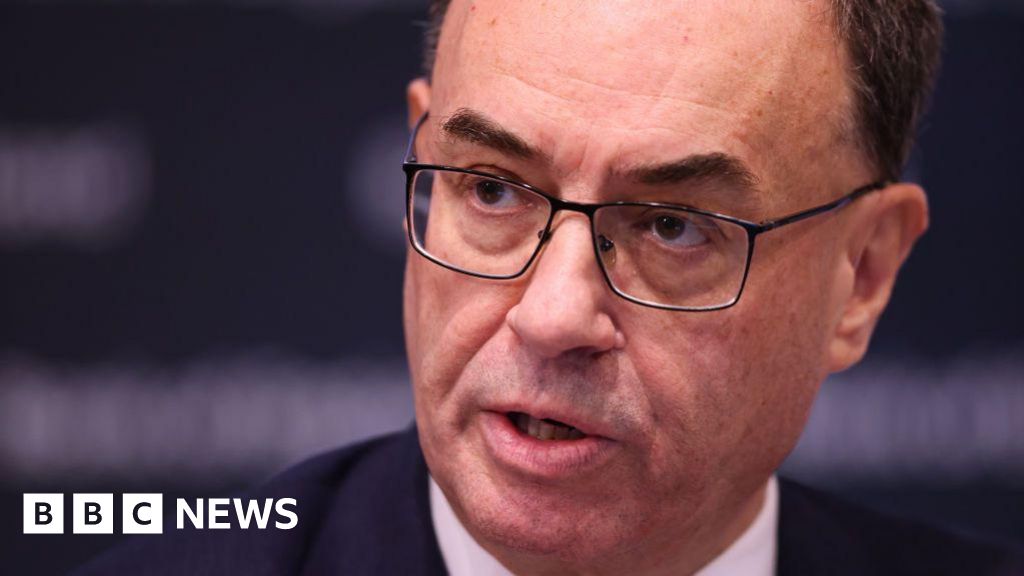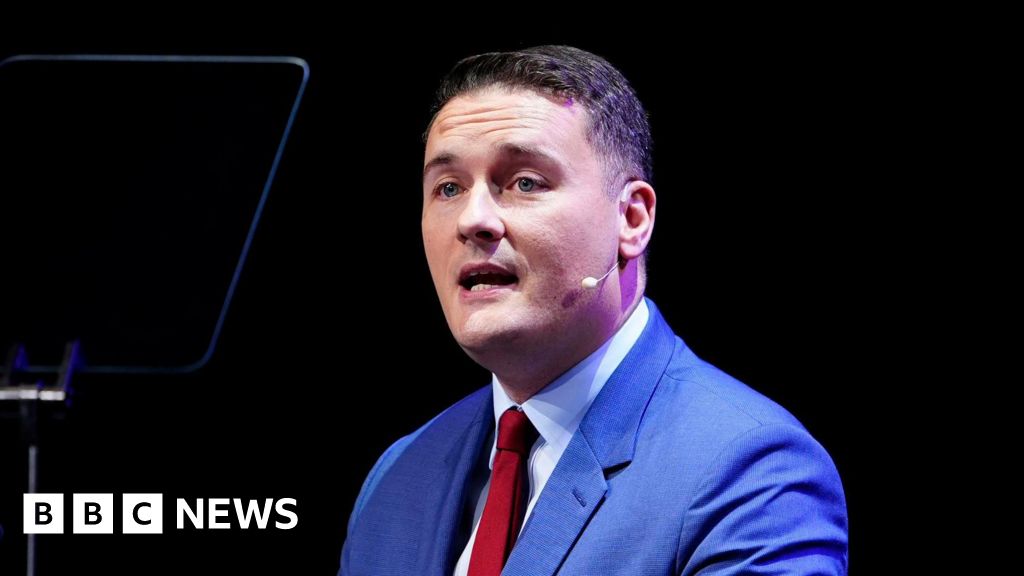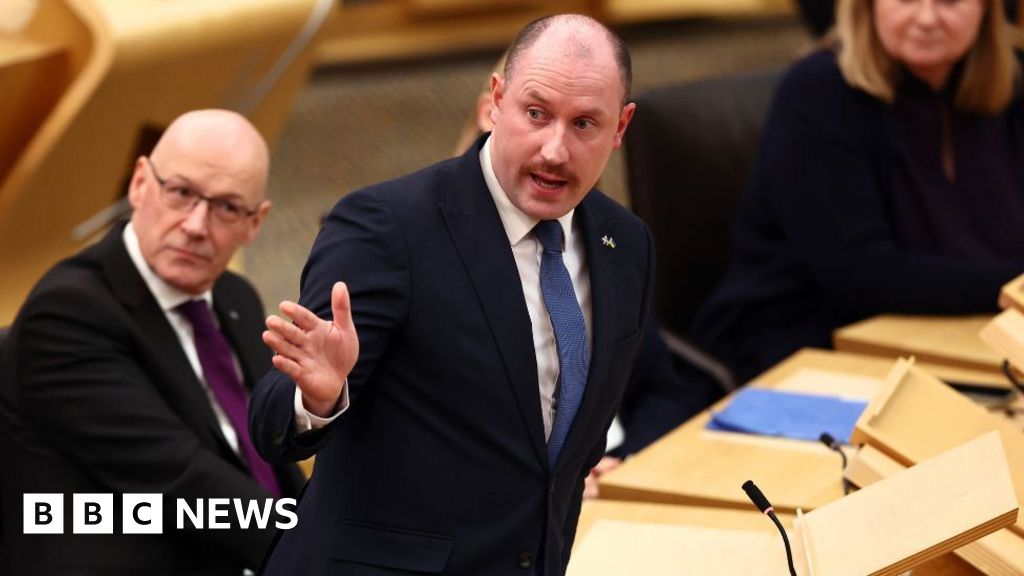ARTICLE AD BOX
Dominic Raab has become deputy prime minister, justice secretary and Lord Chancellor, leaving behind his job as foreign secretary.
Over the summer, Mr Raab was at the centre of speculation about his future, when he was heavily criticised for his handling of the aftermath of the fall of Afghanistan.
The then-foreign secretary was criticised for remaining on holiday in Crete while the Taliban marched back to power.
He insisted he'd been across the detail throughout and in touch with the key players.
He rejected opposition calls for him to quit after it emerged that neither he, nor any other minister, had called the Afghan government to discuss the evacuation of translators stranded in the country.
The Conservative MP, who was a leading member of the campaign to get the UK out of the EU, is no stranger to controversy, having hit the headlines for his statements on topics as diverse as poverty and "taking the knee".
He even quit the cabinet once, over former Prime Minister Theresa May's policies on Brexit.
Raab basics
image source, Getty Images
Date of birth: 25 February 1974 (age 47)
Job: Justice secretary, deputy prime minister, lord chancellor, Conservative MP for Esher and Walton
Education: Dr Challoner's Grammar School, Amersham, Oxford and Cambridge universities
Family: Married to Erika Ray, a Brazilian marketing executive. Two sons
Before politics: Foreign Office lawyer. He was the lead on a team focusing on bringing war criminals to justice at The Hague
Mr Raab was born in 1974, the son of a Czech-born Jewish refugee who fled the Nazis in 1938.
He was was brought up in Buckinghamshire and attended Dr Challoner's Grammar School in Amersham, before studying law at Oxford University and switching to Cambridge for his masters degree,
He worked as a lawyer in the commercial sector and the Foreign Office before entering politics in 2006 as an aide to Brexit-supporting Conservative MP David Davis, and then Remain-backing Dominic Grieve.
First elected to Parliament in 2010, the following year Mr Raab angered then-Home Secretary Theresa May by describing some feminists as "obnoxious bigots" in an online article also claiming men were getting "a raw deal".
Mrs May accused him of fuelling "gender warfare".
Mr Raab remained on the back benches for five years after becoming an MP.
But the karate black-belt became a junior justice minister following David Cameron's general election victory in 2015.
He played a prominent role in the successful Leave campaign in the 2016 EU referendum, but was sacked by Mrs May when she took over as prime minister.
Leadership bid
In 2017, Mr Raab was branded "offensive" by then-Liberal Democrat leader Tim Farron after saying "the typical user of a food bank is not someone that's languishing in poverty; it's someone who has a cash flow problem".
But in June that year he returned to government, as a justice minister, this time middle-ranking rather than junior.
In Mrs May's January 2018 reshuffle he became housing minister - one of the highest-profile non-cabinet roles in government.
And in July that year, when David Davis quit, the prime minister promoted Mr Raab to Brexit secretary, a cabinet post.
Yet his improved relationship with Mrs May did not last long. In November 2018, he quit, arguing that he could not "in good conscience" support the "backstop" arrangement designed to avoid a hard border between the Irish Republic and Northern Ireland.
As an influential Brexiteer, his comments were seen as significant in increasing opposition to Mrs May's withdrawal agreement with the EU, which MPs repeatedly rejected.
After Mrs May announced she was standing down, Mr Raab entered the contest to become Conservative leader, and prime minister.
'Get Brexit done'
In a crowded field, he failed to get the 33 MPs' votes he needed to progress to the third round. Fellow Brexiteers Boris Johnson and Michael Gove outlasted him.
Mr Johnson, to whom Mr Raab gave his support after his elimination from the the race, promoted him to foreign secretary and first secretary of state - effectively deputy prime minister.
But he only narrowly managed to hold on to his Esher and Walton seat at the 2019 general election, seeing off a strong Liberal Democrat challenge by 2,743 votes.
The overall Conservative landslide, however, on a promise to "get Brexit done", meant he saw his dream of leaving the EU come true on 31 January 2020.
As foreign secretary and first secretary of state, he was the UK government's de-facto second-in-command.
He was left in charge of running much of the government when the prime minister was hospitalised with Covid-19 in April last year.
'Take the knee'
Colleagues, including Mr Johnson's arch-critic and former aide Dominic Cummings, have praised Mr Raab's performance under extreme pressure.
But he has continued to anger opponents with some of his comments, in 2020 telling talkRadio's Julia Hartley-Brewer he would only "take the knee" - go down on bended knee - for "the Queen and the Mrs when I asked her to marry me".
He later qualified his remarks - following opposition criticism of his "insulting" and "flippant" tone - saying he "fully" supports Black Lives Matter campaign.

 3 years ago
111
3 years ago
111








 English (US)
English (US)